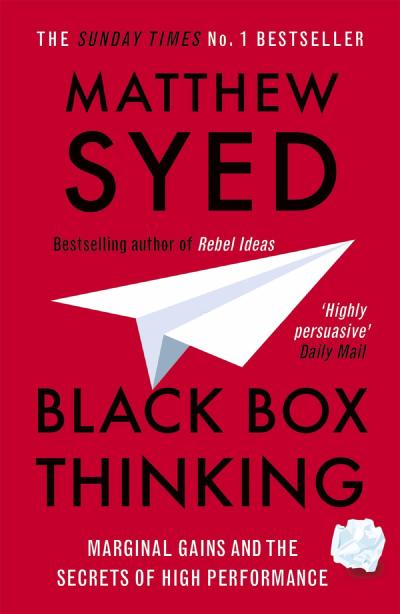2025 Hindsight: Syed was a big influence on me both via this and his previous book. Possibly too much, as his articulation of Carol Dweck’s ideas was super-persuasive and probably net negative in terms of my parenting. Or as my eldest would put it these days “I fucking hate fucking Carol Dweck". But some things have stuck - that I should look for evidence that disproves an idea, that I should go to where the disagreement and tension are in organisations, even if it is painful (and some of my colleagues would probably agree lol) - because disagreement makes the ideas better. It also reminds me of my favourite Pixar story, where the culprit was known but not blamed, but, in fact, protected to this day…unlike, sadly, the lady whose SGI Workstation saved the day.
Lessons he tries to teach
- Beware strong desire for preservation of self-esteem
- Seek evidence that disproves your idea
- Acknowledge mistakes freely and often
- Favour trial and error over ’expertise'
- No good just ‘failing faster’ - need a way to harvest all those failures from across the organisation
- Be careful in your interpretation of the reasons for failure - cf the military aeroplane reinforcement conundrum
How can we harness the power of learning from mistakes in our jobs, our businesses and in our lives?
The first is to be gentle and positive about failure as a part of life and learning, and teach our children that the desire to avoid it leads to stagnation.
The second is to create systems of feedback that capture precious failures faster. These could be RCTs, pre-mortems, MVPs, marginal gains or others approaches
Quotes from the book
Dyson was not the first to come up with the idea of a cyclone vacuum cleaner. He was not even the second, or the third. But he was the only one with the stamina to ‘fail’ his concept into a workable solution.
Quoting Ed Catmull ‘Early on, all of our movies suck. That’s a blunt assessment, I know, but I . . . choose that phrasing because saying it in a softer way fails to convey how bad the first versions of our films really are. I’m not trying to be modest or self-effacing by saying this. Pixar films are not good at first, and our job is to make them go . . . from suck to non-suck . . . We are true believers in the power of bracing, candid feedback and the iterative process –reworking, reworking and reworking again, until a flawed story finds its throughline or a hollow character finds its soul.’
On the dangers of blame closing down opportunities for learning. A judgemental culture as opposed to a just culture where you try to understand first rather than blame.
But the crucial point here is that justifiable blame does not undermine openness. Why? Because management has taken the time to find out what really happened rather than blaming pre-emptively.
The impetus that drives learning from mistakes is precisely the same as the one that aims at a just culture. Forward looking accountability is nothing more and nothing less than learning from failure. To generate openness, we must avoid pre-emptive blaming. All these things interlock in a truly adaptive system.
This is why evidence suggests that traders in a Growth Mindset are less inclined to the disposition effect; less inclined to blindly persevere with a losing stock. When we see failure without its related stigma, the point is not that we commit to futile tasks, but that we are more capable of meaningful adaptation: whether that means quitting and trying something else or sticking –and growing.
At the level of the brain, the individual, the organisation and the system, [harnessing] failure is a means –sometimes the only means –of learning, progressing and becoming more creative.
